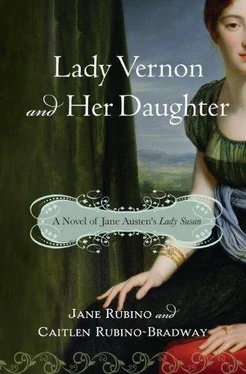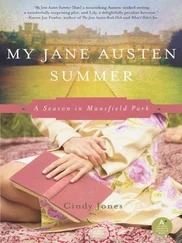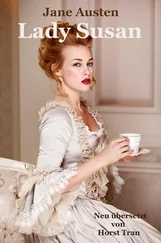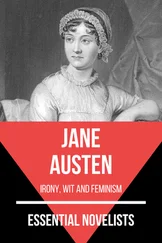These candidates were the brothers Vernon. Frederick Vernon, the elder, was a good-natured gentleman of thirty. He had, some years earlier, rescued an impulsive young duke who had jumped into a pond on a challenge only moments before recollecting that he did not swim. A knighthood had been the result, and the conversion from Mr. Frederick Vernon to Sir Frederick Vernon had been effected without injuring the young man’s kindhearted civility. He had a great fondness for society but had lately been kept from the enjoyment of it out of filial obligation. His father had suffered a prolonged illness, and Sir Frederick sacrificed his own pleasures to remain at the family property in Sussex, attending his father with great devotion until his demise.
It was the younger Vernon, however, who immediately petitioned Miss Martin for the next two dances, and she was obliged to consent. Charles Vernon was six years his brother’s junior, and very different in appearance and disposition. He was handsomer of figure and face, more ingratiating in his manner, and livelier in his conversation. An unsophisticated observer would find him the more pleasing of the two, but the more cautious eye would detect the sort of high spirits that were the result of habitual indulgence in all of the license that a young man of good family can lay claim to. When Miss Martin expressed her condolences upon his recent loss, his remarks displayed a want of feeling and propriety that not even his handsome face and ingratiating conduct could disguise. While his father lived, Charles Vernon did not scruple to forfeit principle to pleasure, and when his father lay ill, he continued to amuse himself in London and Bath, arguing himself into the conviction that his father’s health would not hang upon his going to Sussex and making a show of concern. If the old gentleman lived, Charles would have sacrificed his diversion for nothing, and if he died, Charles would be scarcely a penny better off. Mr. Vernon had always held the opinion there was no wisdom in assigning large portions to younger children; it was the heir who must keep up the family property and he must have the money to do it.
Having neither property nor profession, and only the five thousand pounds through his mother’s marriage settlement and another five that was left by his father’s will, Charles had resolved upon marrying a rich woman—yet when he laid eyes upon Susan Martin, even this principle began to give way. She was, beyond anything, the most beautiful woman he had ever beheld, and to her personal advantages was added the material one of being a near relation to Sir William and Lady Martin. The affection of Lady Martin for her niece was particularly promising as it was rumored that she had something in her own right that might be disposed of at her discretion, and Vernon wanted only the assurance that the “something” was in the neighborhood of ten or twelve thousand pounds before he applied for Miss Martin’s hand.
Charles Vernon’s pretension was not the result of any display of reciprocal feeling on the part of Miss Martin, for she was far too clever to be drawn in by a charming facade, and she perceived that although Sir Frederick was not as handsome or animated as his younger brother, in manners and understanding he was far superior.
Sir Frederick’s disposition was not at all like his brother’s. While Charles Vernon had been all artificial politeness and cold selfishness, every expression of Sir Frederick’s revealed his affability, understanding, and taste, and she concluded their dance with the wish to know him better.
Sir William observed these symptoms of compatibility and devised many subsequent occasions for bringing them together. Charles Vernon could not be excluded, and he was invariably charming, but he could not declare himself before he was assured that Susan Martin would have something more than a mere five thousand pounds, and he held back long enough for Sir Frederick to overcome his natural diffidence and make Susan Martin an offer of marriage.
The lady’s parents offered no objection; Sir Frederick was an excellent man and very much in love with their daughter, and Susan’s happiness was motive enough for them to moderate their ambitions for rank and connections. As for Sir William, he was so relieved that he had divided his niece from his son that he succumbed to a plan of Lady Martin’s to add to Miss Martin’s settlement. “Our brother has been an excellent father in everything but prudence,” said she. “He can settle nothing on Susan but five thousand pounds. We have only our son, who is provided for, and I have always regarded Susan as a daughter. May we not do something for her?”
“Indeed, yes,” declared Sir William. “I will settle another five thousand upon her and buy her wedding clothes as well.”
“It is no less than I would have expected of you—but I ask for something more. Everybody exerts on a woman’s behalf when she is to be married, but it is when she is widowed that she most wants some consideration, for a woman who is predeceased by her husband is often left with no place to go. We have not gone to London above one winter in four—why may we not settle the house in town upon her? The diversions of town, though not to our liking, will be very agreeable to them—it will allow Susan to spend part of the year near her family, and she will be assured of having someplace to go if she should find herself a widow.”
“It is a very strange thing to put her in weeds upon the eve of her wedding,” remarked Sir William, and yet he saw the prudence of her suggestion and consented to settle their fine house on Portland Place upon his niece.
Everyone was delighted except for Charles Vernon, who began to be angry that—as Susan Martin was to have ten thousand pounds rather than five and a fine house in town—he had not pressed his suit. The necessity of being on amicable terms with his brother, however, obliged him to make a show of goodwill, yet he did not scruple to mention to all of his acquaintance that Miss Martin’s affections had been overruled by ambition, that she had set her cap for the brother who could make her mistress of an estate with an income of four thousand a year rather than the one who, at present, had no prospects at all.
And so, before her eighteenth year, Miss Susan Martin became Lady Vernon.
Lady Vernon’s first opinion of the Vernon family property was highly favorable as it was formed as they passed through the village of Churchill, which was yet five miles from the estate. Nothing of the manor was visible but for an imposing pair of stone turrets, and the high ground gave a picturesque aspect to the farms and tenant cottages and to the parsonage and churchyard beyond. As they approached the steward’s lodge, however, Lady Vernon observed that the smooth roads became rutted, and their carriage was rattled by furrows and potholes that would invite mud when the weather was wet and dust when it was dry (for the late Mr. Vernon had always been of the opinion that the tenants and cottagers must be able to get round to one another, while it was not at all necessary that they wait upon him).
The manor house lay at the end of a long avenue bordered by lichen-covered oaks that formed a dense canopy that rendered the passage oppressive and dim on all but the brightest of summer days. The house itself had begun as a handsome edifice of old gray stone, rising turrets, and looming gargoyles, but it had been handed down to master after master who made only those improvements necessary to ensure his immediate comfort. While the parsonage and farms and tenant cottages were always kept in good order, the manor house fell into such a state of disrepair that it could only be made habitable by appending an entirely new dwelling onto the old one.
Читать дальше












